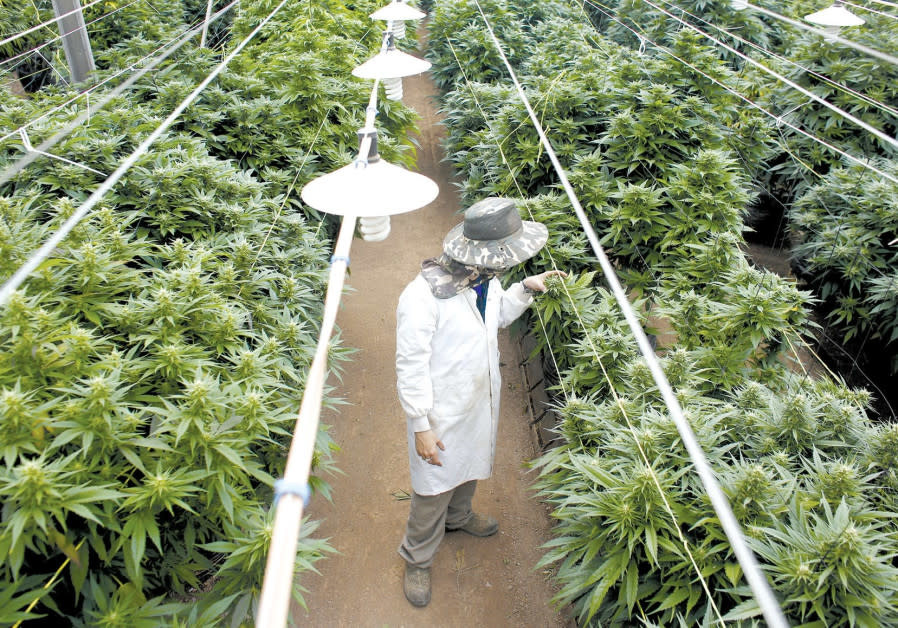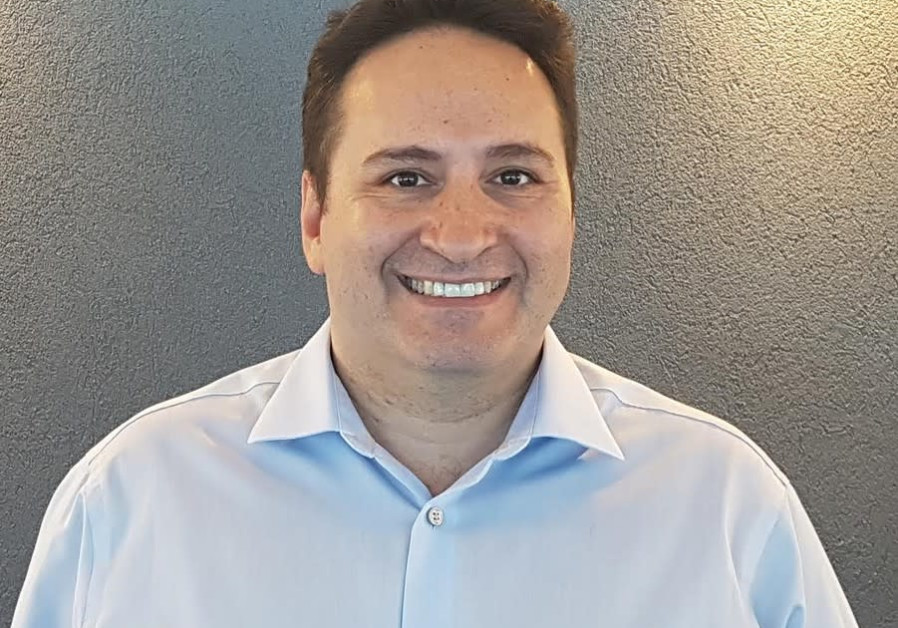The global cannabis market is expected to be worth some $32 billion in 2022 and $57 billion by 2027.
The budding legal cannabis market is on the verge of a global gold rush, but Israeli companies eager to benefit could miss out.
Valued at $9.5 billion in 2017, the global cannabis market is expected to be worth some $32 billion in 2022 and $57 billion by 2027, according to a recent report by Arcview Market Research and BDS Analytics.
Accordingly, governments and companies around the world are battling for pole position, hungry to take advantage of the booming market being driven by increasing awareness of the medical benefits of cannabis and its greater use in treating and relieving symptoms of certain diseases, as well as the legalization of recreational cannabis use by a limited number of countries and US states.
Those who stand to benefit from the expanding cannabis market are indebted to an Israeli scientist.
In 1964, organic chemist Prof. Raphael Mechoulam became the first to isolate the THC and CBD compounds in the cannabis plant, which offer great potential for the treatment of pain and inflammation. THC is also the psychoactive substance in cannabis.
Since Mechoulam’s discovery over 50 years ago, Israel has continued to be the home of innovative cannabis research and development, with the Agriculture Ministry last year investing in thirteen biochemistry and medical cannabis research projects.
Today, approximately 70 Israeli companies are sitting on a potentially lucrative, cannabis goldmine – but it is a goldmine that has continued to remain untapped as the government stalls regarding the approval of medical cannabis exports for reasons that are not clear.
In February, Channel 2 News reported that export plans were put on hold after US President Donald Trump told Prime Minister Benjamin Netanyahu that he objected to the move.
Uncertainty in the market could cost Israeli companies and the government billions of shekels, with deals already inked with foreign customers, including those active in the highly-profitable and expanding Canadian market, likely to fall through should the state continue to stumble towards a decision.
Tefen, an Israeli licensed medical-grade cannabis producer, is one cannabis company that stands ready to take advantage of the huge global market should it receive a green light.
“Israel has all the infrastructure to be a leader in the medical cannabis industry,” Yona Levy, CEO of Alvit LCS Pharma and director of Tefen, told The Jerusalem Post. “The only hold up is that the government has decided not to decide, which is not in the best interests of Israel or its companies.”
Yona Levy, CEO of Alvit LCS Pharma and director of Tefen / Courtesy
An August 2017 meeting of the Interministerial Committee of the Ministry of Finance and the Ministry of Health recommended allowing the export of cannabis for medical purposes, estimating that the state could earn NIS 1 billion to 4 billion per year by enabling exports.
“We are concentrating on what we’re allowed to do already, to sell in Israel,” said Levy. “Tefen is unique in its stability as we have a net above us in terms of how to operate. If the government allows exports, we’ll be ready for it.”
Tefen has so far concluded two deals worth NIS 80m. to produce 14 tons of cannabis over three years for Israeli consumers. Growth and production will be carried out domestically on five acres of land owned by the company.
Approximately 30,000 Israelis are currently prescribed cannabis for medical use, requiring 14 tons of cannabis per year. The market is expected to grow significantly to 120-170,000 patients requiring 60-90 tons of cannabis per year, in line with other mature domestic markets.
Prior to recent reforms to the domestic cannabis market implemented by the Ministry of Health’s Medical Cannabis Unit, Israeli companies would provide a one-stop shop, all the way from cannabis seed to consumer sales.
Reforms have included dividing cannabis licensing into six different elements, with Tefen identifying added value by focusing on research, cultivation and growth. The company is currently developing a product to treat the symptoms of Psoriasis, with the global market for treating the chronic skin condition expected to be worth $21.4 billion by 2022.
“We’re exporting the reform more than anything else,” Levy told the Post, echoing the frustrations of the entire Israeli cannabis industry.
“Medicinal cannabis helps people that are sick, it provides instant assistance and we have the best lobbyists in the world working for us. These lobbyists are called cancer, pain and Parkinson’s disease,” added Levy. “Imagine if Israel was out there helping those people. That know-how is not going to stay in Israel.”
Identifying great financial potential, large multinational companies are taking their first strides into the cannabis market. In August, Corona beer owner Constellation Brands invested $4 billion in Canada’s leading cannabis producer, Canopy Growth, to develop cannabis-infused drinks.
Coca-Cola announced last week that it was in talks with Canadian producer Aurora Cannabis to develop a similar product.
“Israel is the country where we first isolated the seeds, we have companies such as CannaTech and serious scientists working on development in the field,” said Levy.
“But the position of leading the world does not belong to us anymore. As time passes us by, we’ll find it more difficult to reach the front of the line.”
As Israeli authorities continue to drag their feet over exports, other countries have started to lead the way.
The United Kingdom is the largest exporter of the drug despite a domestic ban on medical cannabis use, exporting 2.1 tons or 67.7% of the global cannabis exports share in 2016, according to a United Nations report released earlier this year. The Netherlands and Austria are the next largest exporters.

